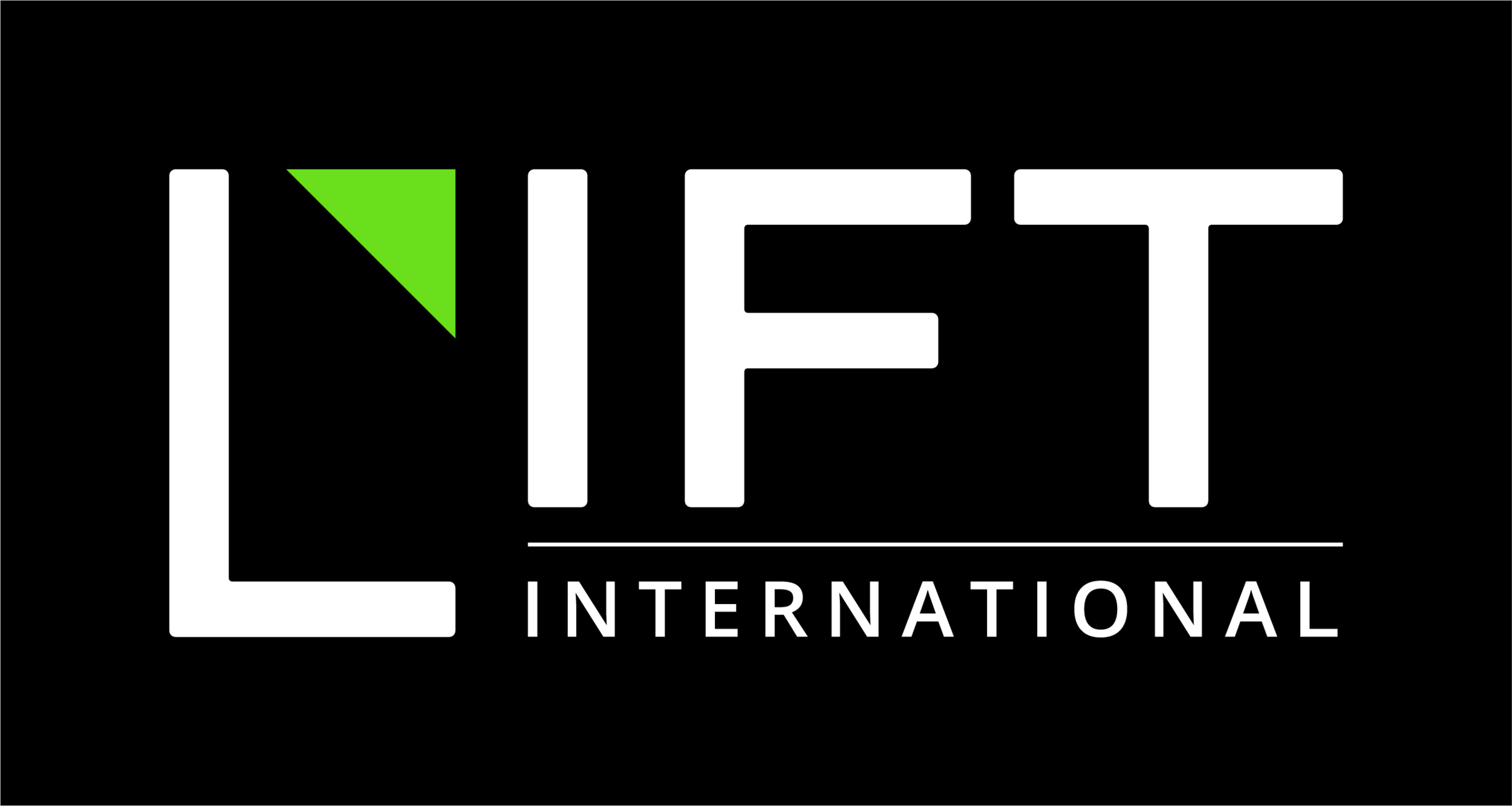2023 US TIP Report and LIFT's Responses to Combating Human Trafficking
The global landscape of human trafficking, as reported in this year's TIP (Trafficking in Persons) report, leads us to observe a trend of cyber slavery. In this case, vulnerable individuals are deceived through fake recruitment, leading to illegal transitional employment such as scamming crimes. Various global problems like war, refugees, and smuggling, also contribute to growing vulnerability, putting more vulnerable individuals at risk for human trafficking.
A unique feature of this year's report is its writing style, which connects various dimensions of the global human trafficking panorama through survivors' stories. This approach enables readers to easily understand the facts and emerging trends, as well as the audacious tactics employed by cyber offenders, while also inspiring a collaborative response to address this issue.
In Jamshid's story, a 20-year-old from Uzbekistan, he was recruited for IT work in Thailand but ended up being forced into an organized cybercrime ring in Burma. When he wanted to leave, the traffickers gave him a choice: pay $3,000 or stay in the cyber scam. Jamshid borrowed money from a friend, paid the traffickers, and safely returned to his home country with the assistance of an international organization in Thailand. [referenced Jamshid’s story from page 29, TIP report 2023 ]
Readers and individuals involved in problem-solving can gain a deeper understanding of the complexities surrounding issues such as the movement of vulnerable groups across countries. We can also understand their motivations, which lead them down paths of victimization, even if they are educated. By gaining a clear understanding, we can collaborate with private organizations that target and identify human trafficking crimes or support survivors, such as PayPal and Polaris, as well as communication and technology services like social media.
Thailand ranks among the nations meeting Tier 2 standards this year, as recognized in last year's rankings. While we hold the futuristic hope of raising the standards for combating human trafficking in Thailand, we also acknowledge that reaching and maintaining this level has been possible due to the efforts and cooperation from all sectors in dealing with the progressive tactics of perpetrators in the modern day.
Several of TIP's recommendations for Thailand can be a positive force for solving the human trafficking problem and raising our practical standards. One particularly interesting recommendation is to establish proactive investigations and enforce significant penalties for government officers involved in facilitating these crimes.
Additionally, providing training to government officials and staff on capacity building, especially in the identification of human trafficking targets and Thailand's trafficking laws, remains the same recommendation as last year. Another crucial recommendation is to design guidelines for providing services to survivors using a survivor's engagement approach. Listening to survivors' voices will enable the successful adoption of a victim-centered approach to holistically support survivors throughout the entire process, which starts from the screening process, prosecution proceedings, and continues until complete reintegration. This includes creating a secure environment, providing appropriate resources tailored to their needs, addressing their trauma, and supporting the specific needs of each individual.
"As a human rights professional, my heart breaks every time vulnerable people, such as survivors, are treated with inhumane standards, resulting in their re-traumatization," said Janejinda Pawadee, our partnership liaison manager. Jane is a person who does not hesitate to promptly engage her network to address the issue when she discovers that survivors have not received justice. Additionally, she stated, "We need more than just a good mechanism for taking care of survivors because the allocation of resources and the equitable transfer of knowledge to every local officer are crucial factors in making this standard become a reality."
LIFT's Actions in Dealing with the Human Trafficking Problem in Thailand
LIFT International’s mission focuses on prosecuting and preventing human trafficking by strengthening justice systems. When it comes to the Tier results, we see them as an annual opportunity to use them as a self-reflection tool. Specifically, we aim to clearly observe our progress in fulfilling our mission and our ability to contribute to society in tackling human trafficking.
Upholding a Victim-Centered Approach in LIFT's Work
LIFT's teams embrace the Victim-Centered Approach as our daily working framework. Moreover, we propagate this approach to our working partners by consistently applying this best practice, so that we are recognized by the multidisciplinary teams with whom we collaborate. Government units have often invited LIFT's team to be part of the multidisciplinary teams, contributing to standards and ensuring impartiality in identifying victims. This is particularly crucial in highly sensitive cases involving child survivors or at-risk communities, where a standard working process cannot be employed.
Furthermore, our team has a system in place to follow up with survivors after they have undergone the screening and identification process. Survivors are required to undergo mental and physical assessments by our social workers, so that we can design appropriate support, addressing their individual needs in both prosecution and trauma recovery, until they are ready for reintegration.
Supporting and Empowering Law Enforcement's Capacities
Our expertise in identifying and targeting human trafficking crimes has been accumulated and developed over LIFT's twelve years. Now, our knowledge can create more influence and impact by sharing valuable experiences to enhance law enforcement's capacity. Our long-term and strengthened relationship with partners enables us to understand their needs and design a training curriculums specifically for each unit. Our training support aims to empower law enforcement with investigative tools and intensive adaptability to their work in combating online trafficking. Therefore, following up on the application results after training is critical to ensure that our valuable expertise and resources are effectively transferred to the right place, time, and individuals who can make a difference in addressing the problem of human trafficking.
Uplifting the Standards of Our Work to Strengthen Justice System
Even though LIFT's work focuses on assisting survivors by partnering with local law enforcement officials, our team's expertise has been widely recognized. This recognition is demonstrated through our invitations to share our comprehensive experience at the policy level. The experiences of our team carry significant weight, reinforcing reliance and confidence when we contribute reflective thoughts from our grassroots-level work perspective. This enables us to support policymakers in considering all relevant aspects
For example, our legal team was recently invited by the Anti-Human Trafficking Division to attend a meeting aimed at listening to recommendations and evaluating the achievements of the Anti-Human Trafficking Act B.E. 2551 (2008) and its amendments. During the forum, our legal counsel had the opportunity to reflect on their working experience, which revealed a lack of understanding regarding Thailand's human trafficking laws, particularly in online cases, among the external multidisciplinary team. This critical issue directly affects survivors, hindering their ability to receive appropriate legal support and pursue compensation in accordance with human trafficking standards.
Furthermore, our law enforcement support and intelligence teams consistently demonstrate excellence in assisting our law enforcement partners. Specifically, our team sets high standards from the beginning when it comes to identifying and analyzing evidence. These efforts significantly contribute to the success of subsequent prosecution proceedings. Over the past three years, our team has uncovered an increasing number of online human trafficking cases. However, it can be challenging to convince those within the justice system that survivors have endured trauma, which can not be physically visible.
I had thought to end this problem by suiside because I was at adead-end. Another order to control me was so horrible for me at that time. If I didin't, he threatened to publish my personal clips and pictures. I had lost my self-worth and dignity.
- A boy who received LIFT's assistance in an online sextortion case.
Therefore, our legal experts have implemented a standard practice of using psychological assessments conducted by professional psychologists to support compensation claims in online cases. As a result, we have noticed a positive trend in compensation judgments, indicating a deeper understanding of the traumatic experiences endured by survivors of online cases among those involved in the justice system over the past two years.
Uplifting the standards and strengthening the justice system through LIFT's work ensures that every life affected by human trafficking and modern-day slavery receives the optimal benefit and justice they deserve.




